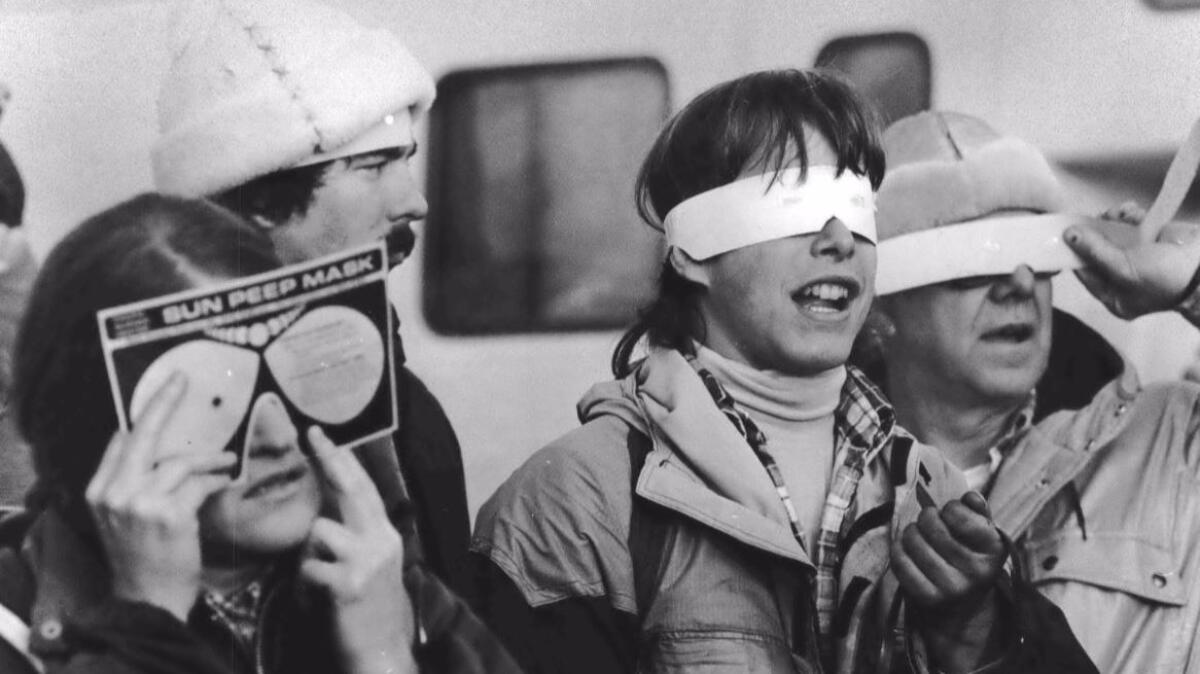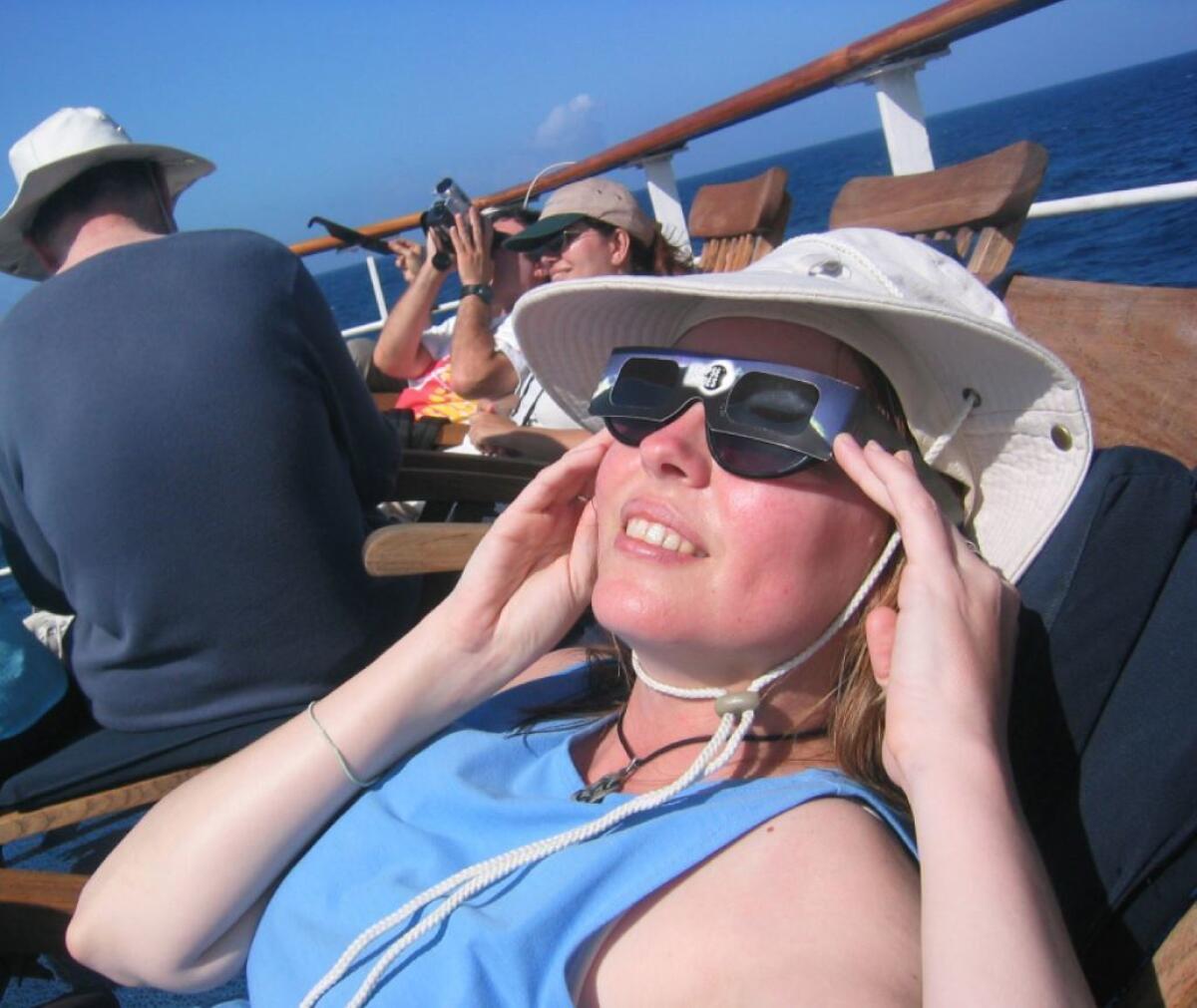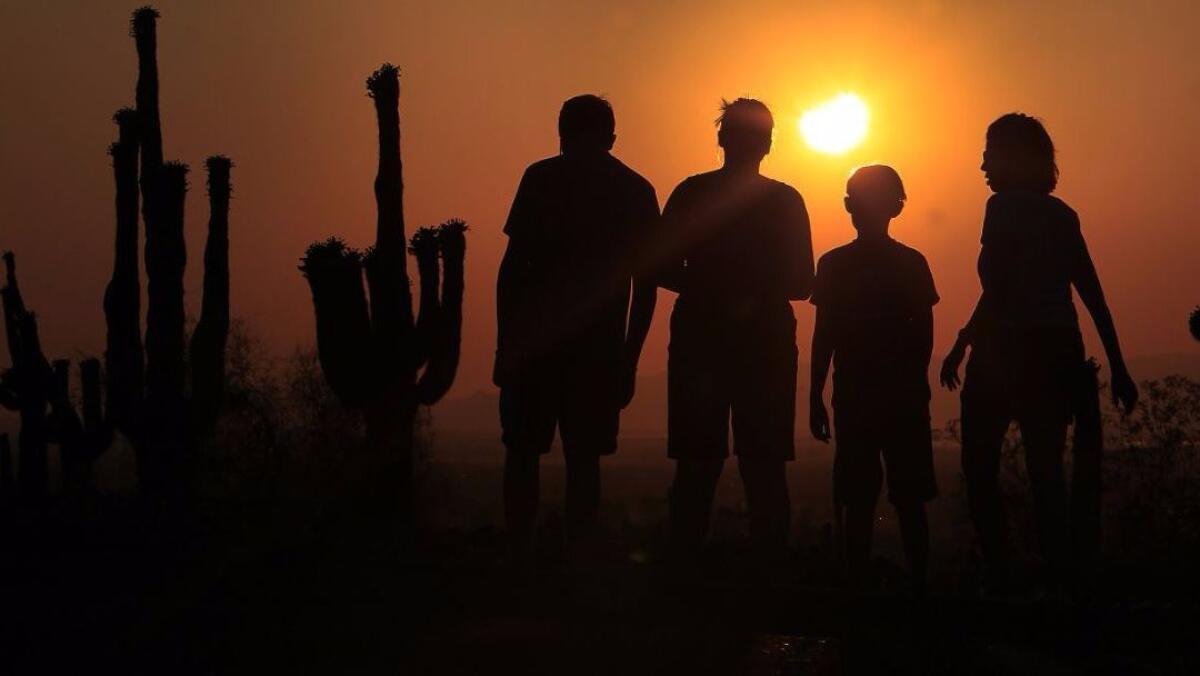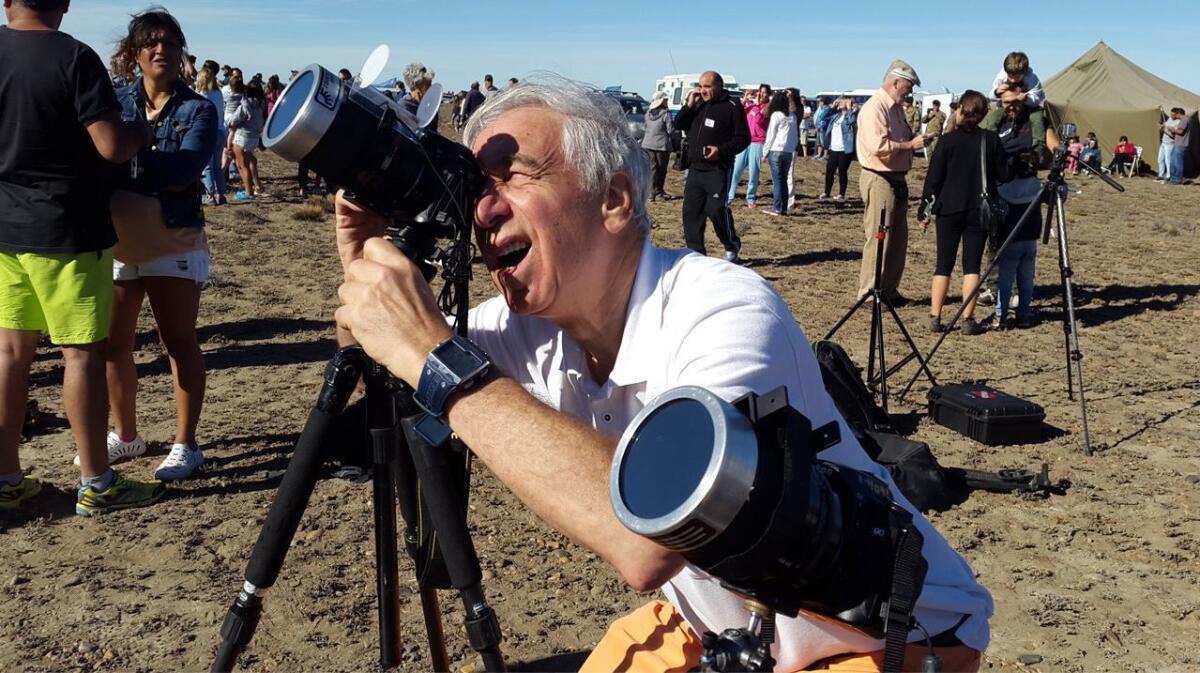These eclipse addicts go to great lengths, again and again, to stand in awe of the heavens

Millions of people will look up to the heavens on Aug. 21 as a total solar eclipse sweeps across the continental U.S. for the first time in 100 years.
For the vast majority of skywatchers, the “Great American Eclipse” will be the first time they’ll experience the eerie darkness that falls when the moon completely obscures the face of the sun.
But for a dedicated few, eclipse-chasing is a lifelong habit.
The desire to stand again and again in the shadow of the moon has taken scientists, photographers and at least one astronomy-loving monsignor to Indonesia, Kenya, Bolivia and the Arctic archipelago, among other distant locales. They have chartered planes to see the eclipse from air and hired boats to view it from the sea.
These self-proclaimed eclipse addicts track the cumulative number of minutes they have spent in totality, when the sun is entirely covered and day turns to night. They pore over weather statistics to increase their chances of being in a spot with clear skies. They make plans years in advance.
Eclipse-chasing is an expensive pursuit, but those who love it say it is well worth it. They are certain that after the Great American Eclipse, their ranks will swell.
Below, five seasoned eclipse-chasers tell The Times what keeps them coming back.

‘You feel both insignificant and connected to something greater.’
Name: Kate Russo
Occupation: Psychologist and consultant for communities preparing for eclipses
Total solar eclipses observed: 10
For me, time stops. You are there in that moment — in that time, in that place — and there is nothing but you and the universe.
It is the universe rendered in 3D. You are standing in the shadow of an object that is passing between you and the sun. The moon is out there, and it is so vast and huge you feel both insignificant and connected to something greater.
You also get this primal fear — it is really profound and intense. The world is wrong.
It’s a strong reminder that no matter your color, background or religion, we are all human beings standing on the planet, looking up. I strongly believe that if everyone could see a total eclipse, the world would be a better place.
‘Each time you see it, it’s not enough.’
Name: Mike Kentrianakis
Occupation: Project manager for the American Astronomical Society’s Solar Eclipse Task Force
Total solar eclipses observed: 10
It’s an amazing sight and you want it to continue. It’s like each time you see it, it’s not enough. It’s never enough.
As soon as it’s over, the first question everyone asks is, “When is the next eclipse?” Everyone says the same thing.
It’s a cycle, just like the sun rising each day because of the rotation of the Earth, or the orbit of the moon marking the month. There are eclipse cycles too, and if you follow them, you’ve given yourself another hand on your clock.
Of course you can’t see them all. It can be too costly, too remote, or you have work or personal affairs. You have to put it aside, and not think about it because it can torment you. It’s that kind of thing.
‘It’s the best way to travel.’
Name: Ron Royer
Occupation: Catholic priest, monsignor and photographer
Total solar eclipses observed: 15
Total solar eclipses chased: 21
It’s the best way to travel.
We go where the weather tells us it will be best to see the eclipse, so we usually come to areas that are off the tourist track. We go there, visit the people, visit any sites of interest, and the people are really thrilled to see scientists.
We’re usually flying to some distant place, so we have to buy batteries and other things. We’re not just regular tourists, and we’re not treated as regular tourists.
When we travel like this, we get to know what it is really like in these places. For the money we spend on these trips you might think, “Why do they keep doing it?” But even if we get clouded out, we still have a wonderful trip.

‘Each one is different.’
Name: Joel Harris
Occupation: Systems and electronics engineer
Total solar eclipses observed: 19
For me, one of the biggest reasons to chase eclipses is that each one is different. It’s the same stages and the same steps, but the surroundings are so completely different, not to mention the people, the culture and the food. I never dreamed I would go to the Australian outback, for example, or the Bolivian Plateau.
Another driver for me is I just enjoy the experience of seeing it happen. It’s so coincidental that the sun is 400 times the diameter of the moon, and the moon is 400 times closer to the Earth.
Is that an accident? I don’t know.

‘It’s a primal feeling.’
Name: Jay Pasachoff
Occupation: Solar physicist
Total solar eclipses observed: 33
The feeling you get being out in an eclipse is like none other and has to be experienced to be understood.
It’s a primal feeling that comes from hundreds of thousands of years of evolution — you know something is wrong with the order of things in the universe when it gets dark and cold around the middle of the day.
It’s also just amazing that you can go halfway around the world to an ordinary place, at an ordinary-looking time, and yet something extraordinary will happen.
Do you love science? I do! Follow me @DeborahNetburn and "like" Los Angeles Times Science & Health on Facebook.
MORE IN SCIENCE
The Great American Eclipse: How to watch safely
Will the Great American Eclipse make animals act strangely? Science says yes
Parades, parties and port-a-potties: Eclipse mania is taking hold from coast to coast




